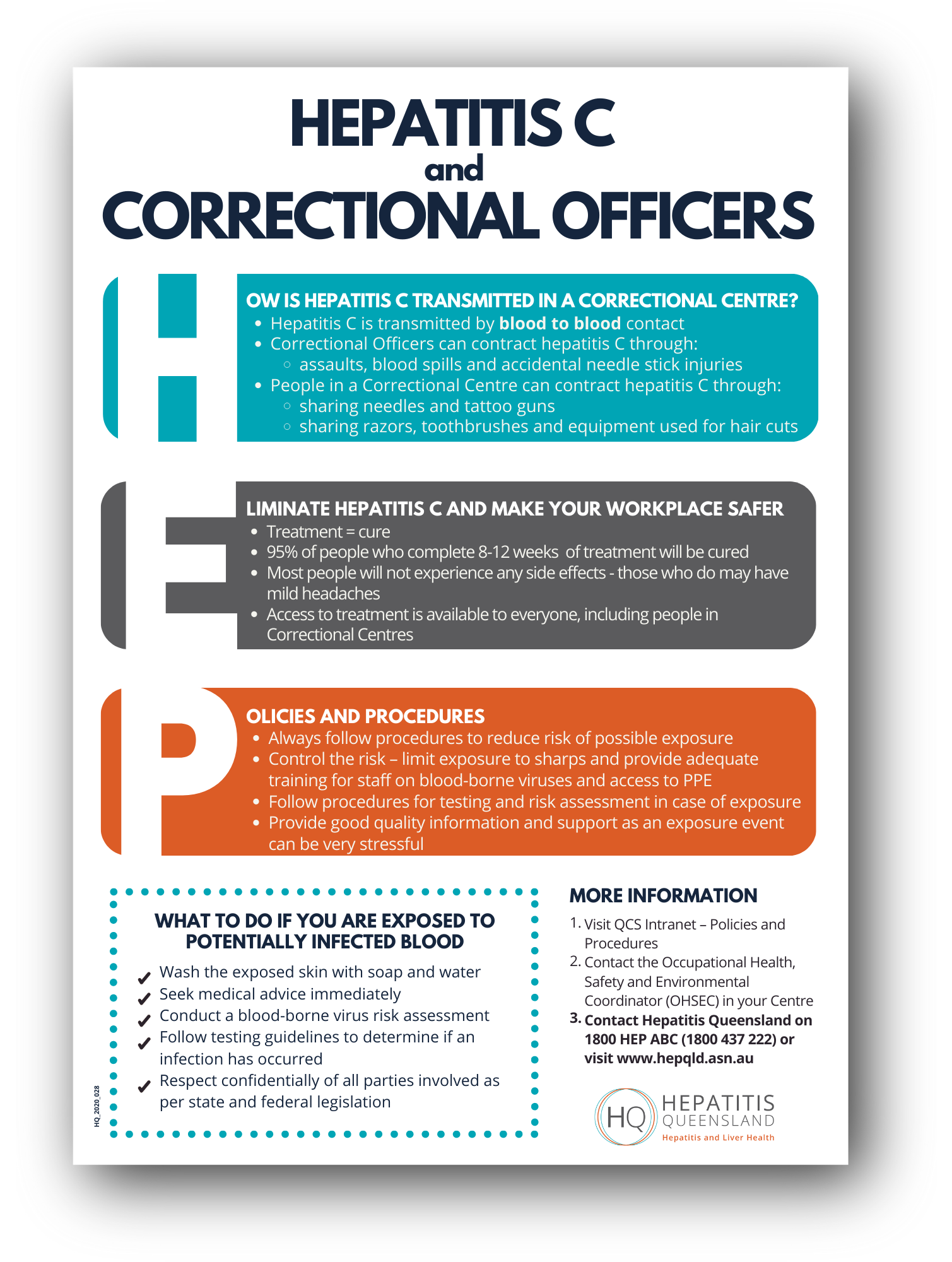Hep C and correctional officers
Posted 18 September, 2020
Similar Resources
Hep C and correctional officers
How is hepatitis C transmitted in a correctional centre?
Hepatitis C is only transmitted by blood to blood contact. This can include:
- Assaults, blood spills and accidental needle stick injuries
- Sharing needles and tattoo guns
- Sharing razors, toothbrushes and equipment used for hair cuts
Can hepatitis C be treated?
- Treatment = Cure
- 95% of people who complete 8-12 weeks of treatment will be cured
- Most people will not experience any side effects – those who do may have mild headaches
- Access to treatment is available to everyone, including people in Correctional Centres
What precautions should be taken?
- Control the risk – limit exposure to sharps and provide adequate training for staff on blood-borne viruses and access to PPE
What should you do if you have been exposed to blood:
- Wash the exposed skin with soap and water
- Seek medical advice immediately
- Conduct a blood-borne virus risk assessment
- Follow testing guidelines to determine if an infection has occurred
- Respect confidentially of all parties involved as per state and federal legislation
Where do I get more information?
- Visit QCS Intranet – Policies and Procedures
- Contact the Occupational Health, Safety and Environmental Coordinator (OHSEC) in your centre
- Contact Hepatitis Queensland on 1800 437 222
Similar Resources

